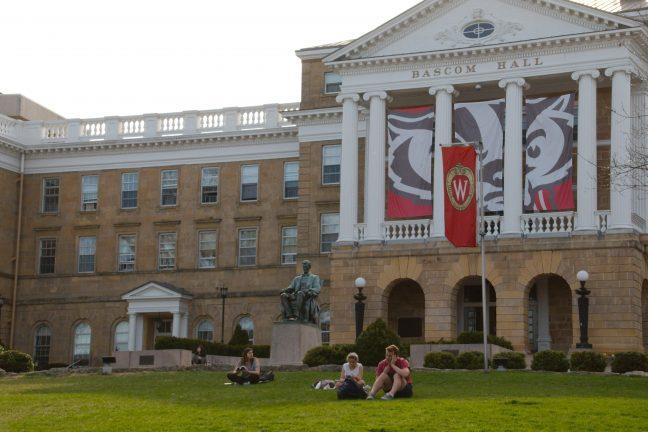U.S. News ranked University of Wisconsin as the 38th best national university in the United States and the 10th best public university.
The U.S. News and World Report Best Colleges rankings identified 1,500 U.S. bachelor’s degree institutions — more than any other year — and assessed these universities on 17 measures of academic quality.
According to U.S. News, its methodology for ranking universities results from years of research. Their approach is refined based on literature reviews, trends, new data and user feedback.
The ranking process remains transparent, allowing prospective students to gather valuable information by knowing what the rankings measure. According to U.S. News, non-academic factors, such as social life and athletics, are not included in the rankings — only academic data from surveys and reliable third-party sources.
Of the 17 measures of academic quality, U.S. News calculates a sum of weighted, normalized values. This information determines a school’s overall score and ranking, according to U.S. News.
Within these statistics lay three top components that allow UW to acquire these rankings — financial resources, student excellence and faculty resources.
UW moved from 52nd place last year to 51st this year in the financial resources category. Student excellence went up from 59th to 57th. Faculty resources went from 107th to 84th within the year.
UW Office of Financial Aid communications manager Karla W. Wandel stated some of the financial aid networks UW offers in an email to the Badger Herald.
“In 2018, Chancellor Rebecca Blank announced Bucky’s Tuition Promise which guarantees to cover four years of tuition and segregated fees for any incoming student from Wisconsin whose family’s annual household adjusted gross income is $60,000 or less,” Wandel said.
Programs such as Bucky’s Tuition Promise are partially funded via donations from alumni, such as the All Ways Forward Foundation, which has raised over $4.2 billion for grants towards student scholarship, facility management and upgrades, research on manufacturing techniques and other organizations and funding for faculty endowments, according to Wandel.
In addition to Bucky’s Tuition Promise, the financial aid team has created programs such as “FASTrack” and “BANNER.” Wandel said these two programs help Wisconsin residents and non-residents cover a larger percentage of the cost of attendance.
“Our team is continually invested in improving financial aid offers to make it easier for students to attend UW,” Wandel said.
Molly Ryan is a senior student at UW majoring in sociology and global health with a certificate in disability rights and services.
“People throw it around as a joke, but it is a work hard play hard mentality,” Ryan said. “You will see students get up super early and stay at the library all day. Then you will see students stay out all day for game day. There is so much Badger pride.”
With regards to faculty resources, UW has developed several resources for students and staff to help them thrive at the university.
James E. Burgess Chair in Journalism Ethics Kathleen Culver explained some of the systems currently in place.
“Resources for me in terms of endowment allow me to hire staff, support research, support outreach [and] support teaching,” Culver said.
She explained how support to seek grants has been helpful in assisting the school’s needs. Culver’s colleagues recently received a five million dollar grant that will help support the Center for Communication and Civic Renewal.
Culver also emphasized the importance of the Wisconsin Alumni Research Foundation (WARF) which no other school possesses. According to Culver, funding for the foundation stems from donations from former Wisconsin researcher Harry Steenbock’s research findings.
“I wanted to do a project on journalism ethics on the public, and I got a twenty-five thousand dollar WARF grant to do that research,” Culver said.
Not all systems within the university are high functioning, according to UW Sophomore Lucy Henry, who has had complications with campus provided healthcare.
UW is constantly working to address and improve upon its shortcomings —listening to students and staff through annual climate surveys.


